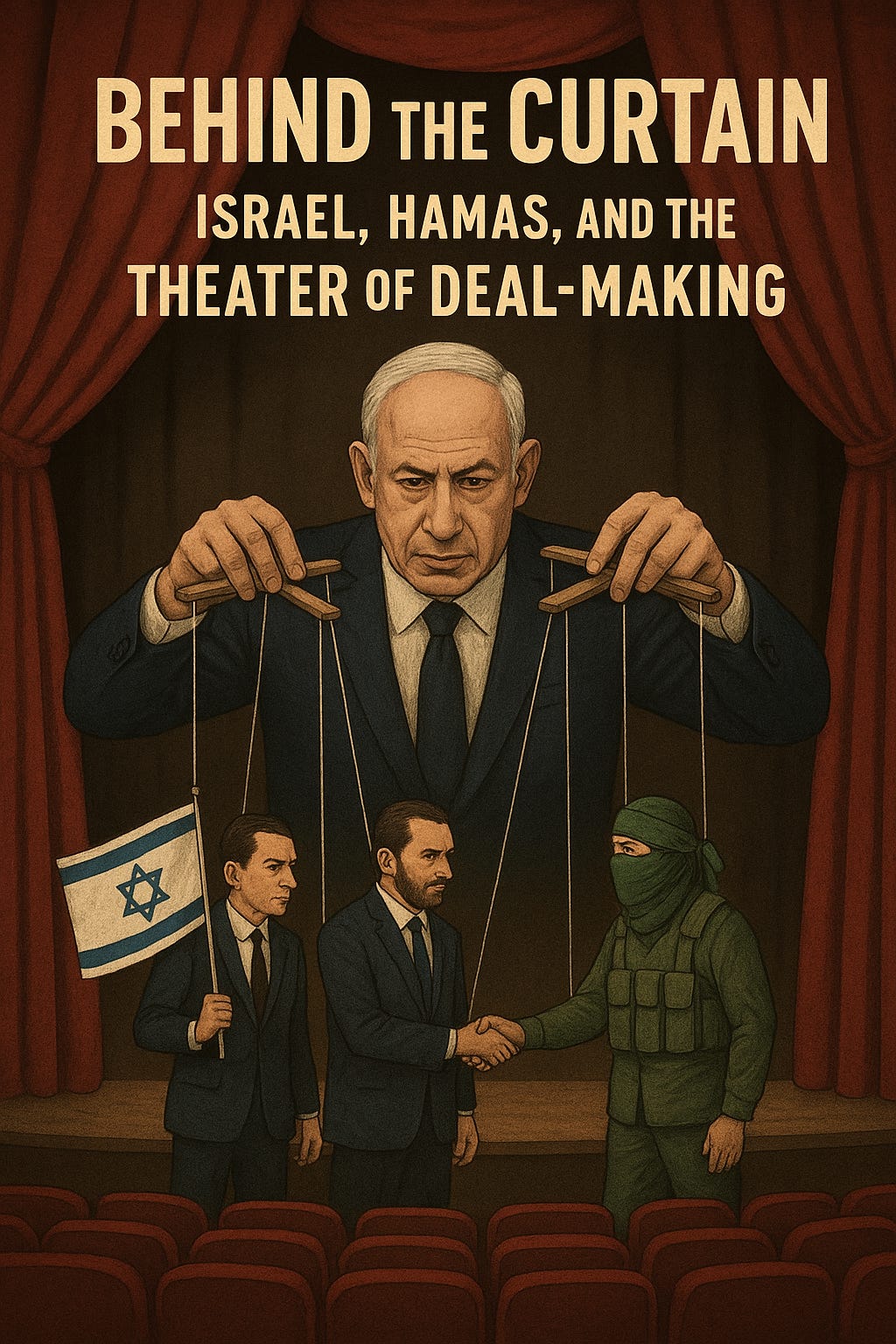Behind the Curtain: Israel, Hamas, and the Theater of Deal-Making
Headlines churn and fade: Israel, Hamas, hostages, deals, strikes. Words ping across newsrooms like ricocheting shrapnel, but the story the public consumes is always polished, compartmentalized, neat.
Headlines churn and fade: Israel, Hamas, hostages, deals, strikes. Words ping across newsrooms like ricocheting shrapnel, but the story the public consumes is always polished, compartmentalized, neat. The real story—messy, improvisational, morally ambiguous—happens elsewhere, in rooms the public cannot enter.
Consider the latest arms seizure: Shin Bet intercepts Iranian claymores, RPGs, drones—enough to rewrite a battlefield strategy—and yet the narrative is muted. Apparently, the IRGC’s fingerprints are smeared across the shipment, but it’s treated as a bureaucratic footnote. Who knows what wheeling and dealing is afoot?
Elsewhere, a convicted felon turned party activist smiles over holiday wine with cabinet ministers, and the cameras are instructed not to linger, giving a whole new meaning to the Likud “Party”. The boundary between criminality and governance is porous; everyone notices, no one comments.
Diplomacy, too, is a theater. A Qatari official sits in on Netanyahu’s delicate apology call after a strike in Doha. Officially, it never happened. Privately, he ensures the lines are delivered, the tone calibrated, the narrative unbroken. Meanwhile, opposition leaders pledge fealty to a new Trump peace plan, whispering coup plots behind closed doors. Loyalty is conditional, and truth is negotiable.
Hamas moves in the shadows. Hostage exchanges, prisoner lists, the fates of Yahya and Muhammad Sinwar—these are not headlines, but human ledger entries. For families like that of Bipin Joshi, the Nepali student still in captivity, these negotiations are abstracted suffering; every statement, every press release, a reminder that they are invisible to the mechanisms of statecraft.
The play continues, cast reshuffling around an unchanging script. Power, survival, and the illusion of procedure dominate. And as always, truth is the first casualty, sacrificed to the exigencies of negotiation, spectacle, and political theater. The audience—us—applauds, oblivious to the smoke and mirrors behind the curtain.


